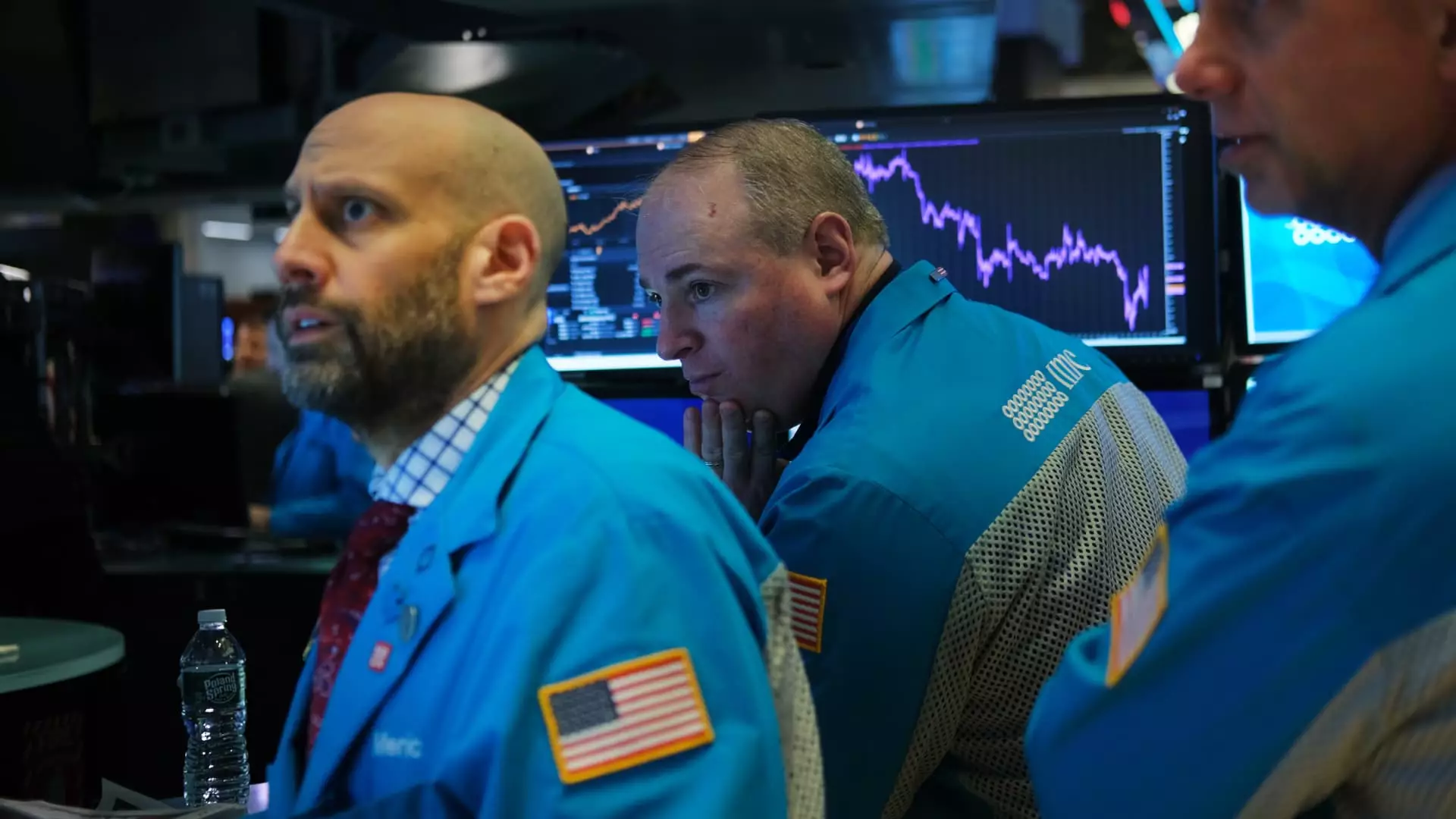The stock market experienced a significant decline on Tuesday as traders closely monitored the surging Treasury yields, which reached a 16-year high. The Dow Jones Industrial Average plummeted by 345 points, equivalent to a 1% loss. Similarly, the S&P 500 and the Nasdaq Composite both experienced significant declines, dropping by 1.1% and 1.5% respectively. As the yields continued to spike, stocks hit their lowest point of the day following the release of the August job openings survey, which indicated a persistently tight labor market. Surprisingly, the survey revealed a staggering 9.6 million vacant positions for the month, surpassing the expectations of economists polled by Dow Jones who had anticipated 8.8 million open jobs. This unforeseen data caused the S&P 500 to plummet to its lowest level since the beginning of June.
Prominent stocks suffered losses during this tumultuous market session. Veralto and spice manufacturer McCormick & Company were hit the hardest, with both companies experiencing a decline of more than 9% in their stock prices. Cruise company Carnival saw its stock dip by 6.3%, closely followed by Airbnb and Viatris, which both experienced losses exceeding 5%. The substantial decline of these industry leaders further exacerbated the overall market sentiment and added to the mounting concerns.
The 10-year Treasury yield rose sharply to 4.787%, marking its highest level since 2007. Similarly, the 30-year Treasury yield climbed to 4.891%, reaching its highest point since October 2007. This surge in yields has been observed over the past month as traders contemplate the possibility of a prolonged period of tighter Federal Reserve policies. Investors have become increasingly anxious about the prospect of higher rates, fearing that such a move may push the economy into a recession. Consequently, Treasury yields have reached levels that have not been witnessed in over a decade. The sharp increase in yields now poses a significant challenge for equities, according to Alex McGrath, the chief investment officer at NorthEnd Private Wealth. McGrath firmly believes that unless the yields stabilize or begin to decrease, they will continue to pose a major obstacle for equities until the end of the year.
While rising rates do not necessarily spell disaster for the stock market, Joseph Cusick, a portfolio specialist at Calamos Investments, highlights potential issues that may arise in an uncertain environment. Cusick argues that higher rates only become problematic when they serve as the foundation for safety trades. If investors perceive higher rates as a safe alternative in this unpredictable market, it could further exacerbate the challenges faced by stock markets.
Following a mixed session in the wake of a short-term agreement in Washington that prevented a government shutdown, Wall Street is now shifting its focus towards crucial economic reports. Market participants eagerly anticipate the release of last month’s payroll reports, which are scheduled for Friday, as well as the commencement of the earnings reporting season next week. These upcoming reports will play a pivotal role in shaping market sentiment and determining the future course of action.
The stock market faced severe downturns as Treasury yields surged to a 16-year high. The unexpected increase in job openings combined with persistent concerns over rising rates created a tense environment for equities. Industry leaders experienced significant losses, exacerbating the overall market sentiment. With Treasury yields reaching levels unseen in over a decade, market participants are anticipating the possible implications for the stock market. The impact of rising rates may prove challenging, particularly if they are perceived as a safe alternative. Despite the short-term agreement averting a government shutdown, attention has quickly shifted towards the upcoming economic reports and earnings season, which will undoubtedly influence market sentiment moving forward.


Leave a Reply